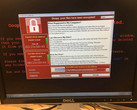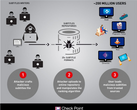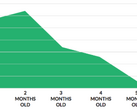As tax season in the United States approaches its deadline, the IRS may have more problems than collecting unpaid taxes this year. In an announcement yesterday, the tax agency said that hackers may have compromised the personal data of as many as 100,000 taxpayers by exploiting the Free Application for Federal Student Aid, or FAFSA, program.
FAFSA is designed as a tool for parents and college students to sign up for financial aid to help pay for university expenses. In the United States, most federal student aid is based on financial status, which is determined by a family’s tax return.
Early last month, a breach in the FAFSA system was detected, prompting the IRS to shut down its Data Retrieval Tool that automatically pulled in previous year tax information held by the agency. The reason for the shutdown wasn’t given at the time, prompting the ire of parents and students alike as they rushed to get applications in before the deadlines for various financial aid programs. Now it’s come out that hackers, posing as students filling out the application, were able to breach the system and gain access to the personal data of 100,000 taxpayers.
That number may actually be an underestimate. As the New York Times reports, the “breadth of the breach remains unknown” at the time of this publication. John Koskinen, the commissioner of the IRS, admitted that the IRS had concerns that the FAFSA tool could be exploited by malicious parties to file fraudulent applications and collect refunds using stolen tax information. These concerns began as early as last fall, months before the breach was detected.
According to the Times, when questioned why he failed to take action sooner, Koskinen said that he didn’t want to shut down the tool as it provided convenience to applicants. He said that he wanted to delay action until there was evidence of a breach.
The IRS has since severed access to the Data Retrieval Tool and doesn’t anticipate it will be secured and ready for use until October. For now, FAFSA applicants will have to resort to referencing copies of their previous year tax returns through other means.
















